
Corsi per bambini di 10–13 anni
I nostri corsi per la scuola secondaria di primo grado propongono contenuti e argomenti adatti all’età, progettati per stimolare gli interessi degli studenti e incoraggiare la partecipazione.
Questi corsi si concentrano sullo sviluppo della fluidità e dell’accuratezza nel parlare, sviluppando al contempo le abilità ricettive (lettura e ascolto), utilizzando un approccio comunicativo all’apprendimento delle lingue.Per saperne di più sul programma dei corsi Meridian, sul piano di studi e sul calendario accademico, consultare le pagine seguenti.
Programma
I nuovi studenti di età compresa tra i 10 e i 13 anni possono iniziare le loro lezioni di Meridiano il lunedì o il martedì, a condizione di completare la registrazione entro 9. 0 am (UK) alla data di inizio scelta. Le date del corso includono giorni festivi e chiusure scolastiche.
Durante la prenotazione troverete le date del corso per i bambini dai 10 ai 13 anni. Di seguito è riportato un calendario del campione. Le regolazioni del tempo seguono la transizione da GMT a BST del Regno Unito. Ti avviseremo se questo influisce sulla classe di tuo figlio.
2 volte a settimana

3 volte a settimana

What your child will learn at each levels?

• È in grado di comprendere e utilizzare espressioni familiari di uso quotidiano e frasi semplici.
• È in grado di presentare se stesso e gli altri e di fare e rispondere a domande su dettagli personali come il luogo in cui vive, le persone che conosce e le cose che possiede.
• Può interagire in modo semplice, a condizione che l’interlocutore parli lentamente e chiaramente e sia disposto ad aiutare
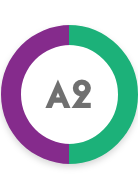
• Riesce a comprendere frasi ed espressioni di uso frequente relative ad ambiti di immediata rilevanza (ad esempio, informazioni personali e familiari di base, acquisti, geografia locale, lavoro).
• Riesce a comunicare concetti semplici e compiti di routine che richiedono uno scambio di informazioni facile e diretto su argomenti familiari e di routine.
• È in grado di descrivere in termini semplici aspetti del proprio background, dell’ambiente circostante e questioni relative ad aree di immediata necessità.

• È in grado di comprendere i punti principali di un testo standard chiaro su argomenti familiari che si incontrano regolarmente al lavoro, a scuola, nel tempo libero, ecc.
• È in grado di affrontare la maggior parte delle situazioni che possono verificarsi durante un viaggio in un’area in cui si parla la lingua. Riesce a produrre semplici testi collegati ad argomenti familiari o di interesse personale.
• È in grado di descrivere esperienze ed eventi, sogni, speranze e ambizioni e di fornire brevemente ragioni e spiegazioni per opinioni e progetti.
Corso di contenuti secondari 10–12 anni
 Unità 1 - 2
Unità 1 - 2
|
Course Title
A1.1
duration
12 weeks
18–30 h |
Temi centrali | Vocabolario di base | Grammatica di base | Pronuncia di base |
|
• Me!
|
• Feelings and Family |
• ‘be’ singular and plural |
• Rhythm
|
 Unità 3 - 4
Unità 3 - 4
|
Course Title
A1.2
duration
12 weeks
18–30 h |
Temi centrali | Vocabolario di base | Grammatica di base | Pronuncia di base |
|
• My day, your day |
• ‘My routine’ and |
• Present simple |
• / tʃ/ |
 Unità 5 - 6
Unità 5 - 6
|
Course Title
A1.3
duration
12 weeks
18–30 h |
Temi centrali | Vocabolario di base | Grammatica di base | Pronuncia di base |
|
• In town |
• Places in a town and |
• ‘there is/there are’ |
• /θ/ |
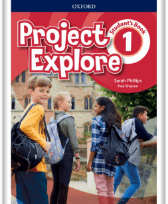 Unità 1 - 2
Unità 1 - 2
|
Course Title
A1.4
duration
12 weeks
18–30 h |
Temi centrali | Vocabolario di base | Grammatica di base | Pronuncia di base |
|
• My life |
• Things you can do and |
• ‘can/can’t’ |
• /æ/ |
 Unità 3 - 4
Unità 3 - 4
|
Course Title
A2.1
duration
12 weeks18–30 h |
Temi centrali | Vocabolario di base | Grammatica di base | Pronuncia di base |
|
• Animals everywhere |
• Features of animals |
• Comparatives |
• /ə/ |
 Unità 5 - 6
Unità 5 - 6
|
Course Title
A2.2
duration
12 weeks
18–30 h |
Temi centrali | Vocabolario di base | Grammatica di base | Pronuncia di base |
|
• Travelling |
• Holidays and activities |
• Past simple + and – |
• /d/ |
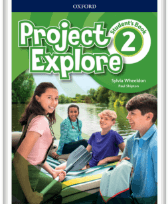 Unità 1 - 2
Unità 1 - 2
|
Course Title
A2.3
duration
12 weeks18–30 h |
Temi centrali | Vocabolario di base | Grammatica di base | Pronuncia di base |
|
• Me and my life
|
• Describing people, |
• Adverbs of frequency |
• /s/ |
 Unità 3 - 4
Unità 3 - 4
|
Course Title
A2.4
duration
12 weeks18–30 h |
Temi centrali | Vocabolario di base | Grammatica di base | Pronuncia di base |
|
• Food and health |
• Food and drink nouns |
• Countable and |
• /ɑː/ |
 Unità 5- 6
Unità 5- 6
|
Course Title
A2+.1
duration
12 weeks
18–30 h |
Temi centrali | Vocabolario di base | Grammatica di base | Pronuncia di base |
|
• City and country |
• City places and |
• Comparative and |
• Sounding polite |
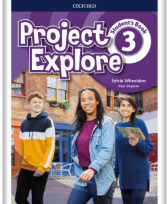 Unità 1 - 2
Unità 1 - 2
|
Course Title
A2+.2
duration
12 weeks
18–30 h |
Temi centrali | Vocabolario di base | Grammatica di base | Pronuncia di base |
|
• Family histories |
• Life stages and verbs of |
• Past simple ‘used to’
|
• Syllables |
 Unità 3 - 4
Unità 3 - 4
|
Course Title
A2+.3
duration
12 weeks
18–30 h |
Temi centrali | Vocabolario di base | Grammatica di base | Pronuncia di base |
|
• Me, myself and I |
• Parts of the body, |
• ‘can/could/will be able to’ |
• /ɒ/ |
 Unità 5 - 6
Unità 5 - 6
|
Course Title
A2+.4
duration
12 weeks18–30 h |
Temi centrali | Vocabolario di base | Grammatica di base | Pronuncia di base |
|
• Space: the final frontier |
• Space, large numbers, |
• Comparatives |
• /ð/ |
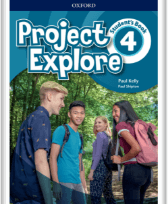 Unità 1 - 2
Unità 1 - 2
|
Course Title
B1.1
duration
12 weeks
18–30 h |
Temi centrali | Vocabolario di base | Grammatica di base | Pronuncia di base |
|
• Social circles |
• Relationship adjectives |
• Comparatives |
• /ð/ |
 Unità 3 - 4
Unità 3 - 4
|
Course TitleB1.2duration
12 weeks
18–30 h |
Temi centrali | Vocabolario di base | Grammatica di base | Pronuncia di base |
|
• Respect |
• Practical science nouns |
• Modals: advice, |
• Sentence stress |
 Unità 5
Unità 5
|
Course Title
B1.3
duration
12 weeks
18–30 h |
Temi centrali | Vocabolario di base | Grammatica di base | Pronuncia di base |
|
• Surviving the test of time |
• Verbs and dependent |
• The passive |
• Word stress |
 Unità 6
Unità 6
|
Course Title
B1.4
duration
12 weeks
18–30 h |
Temi centrali | Vocabolario di base | Grammatica di base | Pronuncia di base |
|
• Our world |
• Digital media
|
• Reported speech |
• /ʌ/ |







